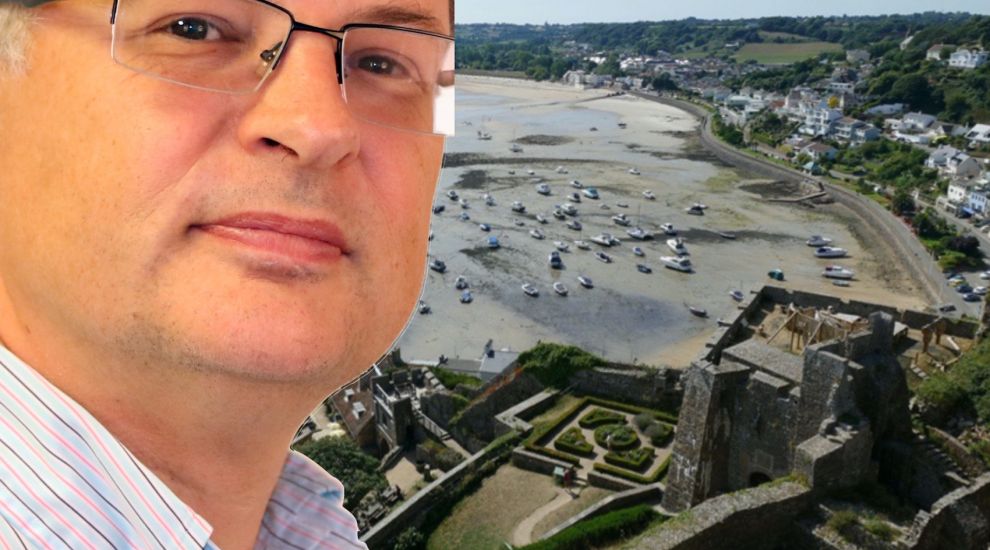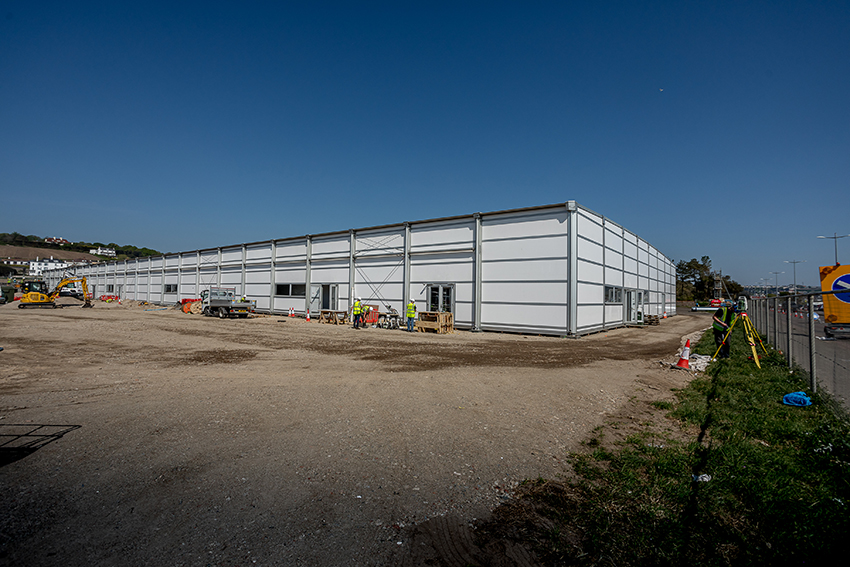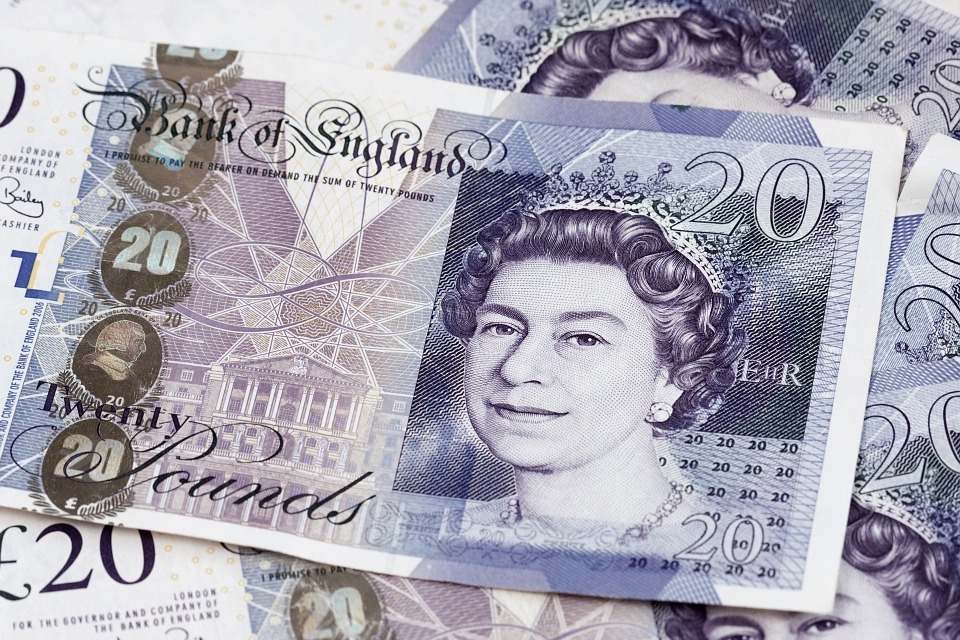


In the next of our series on how Jersey needs to recover from the actions taken to prevent the spread of corona virus, economist Dr Michael Oliver sets out how we need to be careful not to snatch defeat from the jaws of 'victory'.
"Has Jersey had a good pandemic? Leaving aside whether a second phase of covid-19 invades these shores, 31 deaths is a very low figure compared to the 460,000 who have died worldwide.
The speed with which Jersey’s Nightingale Wing was erected suggests that officials expected a steep rise in casualties, perhaps running into the hundreds.
We should be thankful that this did not occur and saddened for those who have lost loved ones.

Pictured: The quick erection of the Nightingale suggests officials expected many casualties.
Any future enquiry into how Jersey handled the pandemic will undoubtedly explore whether the low incidence of covid-19 in the island was because of good policymaking – which the politicians in charge would insist it was – or just down to luck.
Over the years, Jersey has had its fair share of good luck.
The island is fortunate to have a rich geography and topography which has provided for success in agriculture, fishing and tourism. But luck on its own doesn’t get you very far: it requires good leadership and strong political decision making, both of which need to be supported by robust institutions.
It was this combination which allowed a prosperous finance sector to develop, which has benefitted Jersey considerably. Yet, even before covid-19, there was a growing sense that something was going wrong in Jersey.

Pictured: "Good leadership and strong political decision-making" allowed the finance sector to develop, according to Dr Oliver.
Two years on from the 2018 General Election, the Government of Jersey and Ministerial leadership appear to be floundering. Prior to the pandemic there had been months of mounting disquiet about where the tangible results were.
The great promise of a revolution in services with OneGov, which would be accompanied by cost-savings available for redirection to unavoidable high priority areas such as Health Care and Education, is yet to arrive.
Whilst many UK consultants and senior officials have been brought in – and it would be unfair to say there has been no change in service for islanders – most informed commentators report that reforms, efficiencies and savings appear to have fallen far short of what was expected.
On the basis that tax revenues are crucial to fund public services there were also growing concerns that economic growth was faltering and some of our institutions set to grow the economy seemed to lack firepower.
Pictured: Chief Executive Charlie Parker's OneGov regime is yet to show tangible results.
For a long time, policymakers have been aware of the limits to which the island’s favourable tax regime can be allowed to persist, for both internal (more cash is required to pay for government expenditure) and external reasons (the threat of the OECD and the EU).
Despite some efforts, attempts to diversify the non-finance sectors of the economy have simply not provided the revenue which could replace any significant fall in income from financial services (which has diversified geographically and produce wise). Covid-19 has now wreaked havoc on the hospitality and tourist sectors, which cannot be reversed quickly.
More widely, the economic fallout from covid-19 has yet to begin worldwide, and when the central bank ventilator of monetary support is slowly withdrawn, the danger is that parts of the real economy could struggle to show signs of life and could die.
Closer to home, the current buoyant growth in financial services might be reversed if shocks to the real economy have a negative feedback loop on financial institutions.

Pictured: Many believe the health crisis has changed into an economic one.
In short, good luck can become bad luck in a blink of any eye, and good decisions can quickly be replaced by bad decisions.
Why does any of this matter?
Jersey has been through crises before and survived. Some might be content to bumble on gently and hope that some good luck turns up, or that we can put off addressing any problems until after the 2022 General Election. The problem with this thinking is twofold.
First, 10 years of change has been thrust on us in the last three months and we need to respond. Indeed, the crisis has afforded Jersey an excellent opportunity to reset.
The second, and more important, reason can be found in the analysis contained in an article I wrote last year which suggested that rather than going up the steps of the economic development ladder, it was very possible for successful small island economies to go down the steps.* Jersey is essentially in danger of doing precisely this due to a culture of complacency; lethargy; and the social difficulty of implementing change.
Pictured:
For those who prefer to think about what this means in terms of economic numbers: from 2000 to 2017, GVA per head of population in Jersey decreased by almost a quarter in real terms. In 2017, Jersey’s GDP per head of population was almost 25% higher respectively than the UK’s, but, if current trends continue, Jersey’s GDP would be level with that in the UK in the next nine years.
Arguably, a botched response to post-covid-19 issues will bring forward this GDP levelling. Critics might rightly point out that there is more to life than GDP, but only sustainable economic growth can put food on our tables and deliver world class public services for those who most need them.
In recent months, I have been sitting on Jersey’s Chamber of Commerce think tank which meets ‘virtually’ every week. Chamber represents 600 employers with 30,000 employees who pay personal income tax. With fewer jobs, spending is reduced and consumption falls, which in turn means less tax is collected on impôt duties, stamp duty and so on. Without taxation we cannot provide public services.
Hospitality and tourism are facing serious financial ruin the longer the crisis goes on. They and others want solutions. This is not shroud waving but a financial calamity unfolding in front of our eyes. Unfortunately, the themes which dominate the conversations are that businesses feel that the government doesn’t understand them or want to engage and are fearful that when it does, there will be endless committees and debates with few tangible decisions made.
Pictured: "Hospitality and tourism are facing serious financial ruin the longer the crisis goes on."
We are all fed up with platitudes and promises by ministers which are not delivered. The public want action and not spin and promises.
The view is strongly signalled by the Managing Director of the IMF, who has said it is vital that governments act quickly, money is needed to be invested but the receipts should be kept ensuring that despite the necessary speed, there will be accountability.
Government would now benefit from dedicated working groups for each sector of the economy, rather than generic groups. Each sector has its own challenges and opportunities, and these should be urgently worked on. It is imperative that Jersey policymakers, who have told us that change needs to happen, get on with delivering. If there are blockages in the system which prevent change, let’s understand what these are and unblock them.
We need to set a timetable which is impatient for action and we need to make it clear that Jersey is not the place for those who wish to frustrate the wider economic and social change which the island so desperately needs.

Pictured: "The public want action and not spin and promises... We need to set a timetable which is impatient for action."
It is easy to be long on analysis and short on practical solutions, but in a series of articles over the coming weeks, I will draw on the good ideas I have read and heard, to suggest action is urgently needed in three areas:
People can make their own minds up whether the suggestions are ‘left wing’ or ‘right wing’, but they are driven by common sense and a strong desire to get things done.
Indeed, maybe they will encourage a common-sense political party to be formed. There has been a lot of rhetoric about how different the world is going to look after covid-19, but in Jersey it has to alter.
Jersey urgently needs new ideas, leadership and good luck – let’s roll up our sleeves and get cracking!"
This article has been published in association with the Jersey Chamber of Commerce.
James Linder: "The 100 days that changed Jersey"
Pierre Horsfall: "The situation that Jersey is facing is without precedent in scale"
James Filleul: "Courage VS Caution"
* ‘A small island territory moving down the “development ladder”? A case study of Jersey’, Small States & Territories, Vol. 2, No. 1, 2019, pp. 83-104.
Comments
Comments on this story express the views of the commentator only, not Bailiwick Publishing. We are unable to guarantee the accuracy of any of those comments.